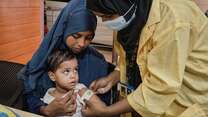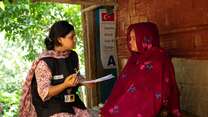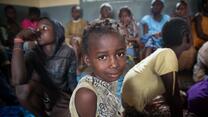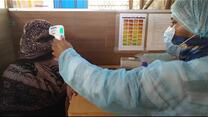In August 2017, more than 740,000 stateless Rohingya started to flee systematic violence and persecution perpetrated by Myanmar’s military and other security forces in Rakhine State. The Government of Bangladesh generously opened its borders to these forcibly displaced Rohingya and is now hosting them in Cox’s Bazar, one of the country’s poorest districts.
Two years on, the response to the Rohingya crisis remains based on a short-term view that focuses on delivering basic and lifesaving humanitarian assistance—but the needs of the Rohingya refugees and local hosting community are far more complex. The Government of Bangladesh rightly wants Myanmar to be held accountable for resolving the root cause of the crisis, but the reality is safe and voluntary returns of the Rohingya to Myanmar are unlikely in the near-term.
For the sake of both Rohingya and Bangladeshi residents of Cox’s Bazar, the Government of Bangladesh must prepare for the fact that this refugee crisis is on track to becoming protracted. Even if Myanmar successfully addressed the underlying causes of displacement and returns became a reality, estimates show that even in the best-case scenario, significant numbers of Rohingya will remain in Bangladesh for more than a decade.
All signs point to an acute need to change the approach to the Rohingya refugee response. In a new joint paper by the International Rescue Committee and Center for Global Development, we explore the impact of a short-term vision and response plan, the policy barriers preventing a more effective response, and what the Government of Bangladesh and the international community must to do shift to a whole of society approach in the medium-term (next three to five years) that will drive self-reliance and well-being outcomes for all.
Now is the time to transition from an emergency response to a comprehensive whole of society approach over the medium-term that deliberately and strategically benefits the local population and Rohingya refugees. National and international actors should prioritize three pillars:
- The Government of Bangladesh, with development and humanitarian actors, should develop a three- to five-year Whole of Society Medium-Term Response Plan that address the well-being needs of, and enables self-reliance among, Rohingya refugees and the Bangladeshi host community in Cox’s Bazar. The plan must define a set of shared outcomes to be achieved, outline complementary actions, and identify steps to expand refugees’ protections and access to services and the labor market.
- The Government of Bangladesh, with development and humanitarian actors, should create a Coordination Platform that is responsible for designing the plan, coordinating implementation of the plan, and monitoring progress of the plan towards agreed outcomes.
- The international community—particularly donors, UN agencies and the private sector—should provide adequate and appropriate support for the implementation of the plan, including multi-year financing, economic incentives for private investment, and other “beyond aid” measures to support economic growth.



